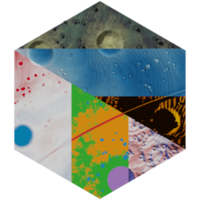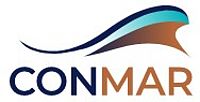Current DSM Projects
The DeepSea Monitoring group is involved in the following national and international research projects:
ValidITy
The ValidITy project will develop software that uses artificial intelligence and terrain classification dictionaries to detect objects in bathymetric measurement data. The aim is to significantly reduce the cost of data analysis.
See also https://validity-project.eu/
SAM
In SAM (Smart AUV-based Magnetics), we develop a smart and truly autonomous system for the AUV-based detection of ferrous materials like UXO (UneXploded Ordnance).
Based on magnetic in-situ measurements, SAM is capable of creating 3D waypoints or even entire AUV missions completely user-independent.
Possible applications are the fully automated detection of off-shore munitions, cable/pipeline tracking, or monitoring sea lanes and harbors.
See also https://sam-project.eu/
CONMAR
The overarching aim of CONMAR is to integrate existing and relevant datasets on historic marine munitions, to combine expertise and knowledge of German marine science organizations, governmental bodies and private sector, to advance our scientific understanding of the role and fate of marine munition in the environment, and provide policy solutions for monitoring and remediation actions in consultation with stakeholders.
See also conmar-munition.eu/de/
ProBaNNt
The overall aim of ProBaNNt is to transform the decision-making process during EOD (Explosive Ordnance Disposal), which is currently heavily experience driven, non-rigorous and non-transparent, into an objective, structured, reproducible and well-informed procedure based on a holistic assessment of many past EOD operations supported by artificial intelligence (AI).
See also https://probannt-munition.eu/
Marispace-X
Marispace-X will create a digital maritime data space based on data sovereignty, security, interoperability and modularity of Gaia-X. It provides new ways in maritime big data processing and analysis of sensor data across Edge, Fog and Cloud Computing. The DSM group provides expertise to MARISPACE-X use case 'Munition in the sea'. The use case aims for realizing significant improvements in the analysis and management of data for munitions recovery through new developments in cloud, edge, and fog computing. This includes the transfer of novel intelligent analytics
into a secure and scalable cloud environment as well as Gaia-X compliant implementation of federated identity and trust services for the security-critical ordnance domain.
See also https://marispacex.com/
MOSES
MOSES is anobserving system of the Helmholtz Association, developed by the Helmholtz Centres in the research field “Earth and Environment”. It comprises highly flexible and mobile observation modules which are specifically designed to investigate the interactions of short-term events and long-term trends across Earth compartments. Heat waves, hydrological extremes, ocean eddies and permafrost thaw will be in the focus of the event-oriented observation and research initiative.
See also ufz.de/moses
iAtlantic
iAtlantic aims to deliver knowledge that is critical for responsible and sustainable management of Atlantic Ocean resources in an era of unprecedented global change. Involving marine scientists from countries bordering the north and south Atlantic Ocean, this ambitious project will determine the resilience of deep-sea animals – and their habitats – to threats such as temperature rise, pollution and human activities.
The DSM group participates in WP2 of iAtlantic and coordinates task 2.4 "Advancing the technology readiness level of new mapping technologies" (Contact: Timm Schoening)
See also iatlantic.eu
MarDATA
The Helmholtz School for Marine Data Science (MarDATA) is a graduate school, financed by the Helmholtz Association. It aims to define and educate a new type of “marine data scientists” by introducing and embedding researchers from computer sciences and mathematics into ocean sciences, covering a broad range from supercomputing and modelling, (bio)informatics, robotics, to statistics and big data methodologies. Researchers from the German leading institutes for marine research, the GEOMAR and the Alfred-Wegener-Institute (AWI) Helmholtz Centre for Polar and Marine Research, will jointly educate and supervise doctoral (PhD) candidates together with information & data science specialists from their partner universities in Kiel (Kiel University) and Bremen (Universität Bremen and Jacobs University).



![[Translate to English:] SAM Logo](/fileadmin/_processed_/4/6/csm_SAM_Logo_0bb092bd5e.png)

![[Translate to English:] Probannt](/fileadmin/_processed_/6/9/csm_Probannt-Logo_6cc36b9470.jpg)




